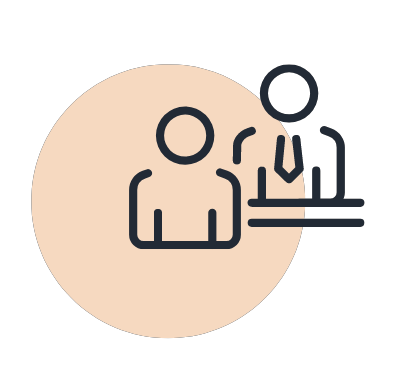What is the overview of e-invoice workflow?
What is the framework of e-invoicing for Malaysia?
The landscape of business transactions in Malaysia is undergoing a significant shift with the introduction of e-Invoicing. This innovative approach promises streamlined processes, improved efficiency, and cross-border compatibility. At the heart of this transformation lies the Peppol e-Invoicing framework, chosen for its maturity, interoperability, and robust standards.
Peppol, or Pan-European Public Procurement Online, isn’t just a framework; it’s a set of technical specifications that bridges existing eProcurement solutions and ERP systems. This convergence facilitates seamless communication between diverse systems, transcending borders and fostering international collaboration. The framework’s key advantages include effortless interoperability, vendor flexibility, and global recognition. Peppol’s success spans over 20 countries, propelled by OpenPeppol, a non-profit association committed to maintaining standards.
In Malaysia, the adoption of Peppol signifies a future of enhanced efficiency, smoother transactions, and international connectivity. As the nation embraces this revolutionary framework, the business landscape is set for a standardized, efficient, and collaborative future.
In conclusion, e-Invoicing’s integration with the Peppol framework marks a new era in Malaysian business. Efficiency, standardization, and cross-border compatibility take center stage, empowering businesses for a dynamic and interconnected future.
Which existing Accounting Software / ERP in the market has e-invoicing Malaysia?
Mostly used by smaller and medium companies/businesses such as: Xero, SQL, Autocount, ABSS, Censof, Sage, Esker and many more.
For example, Xero already implemented E-Invoicing in multiple countries, e.g Singapore which is our neighbour country to implement E-Invoicing using Peppol framework, enabling sending and receiving e-invoices. Xero creates the positive impacts on businesses in issuing invoice efficiently, bills sent into Xero, and improve prompt payments.
Mostly used by large multinational companies/businesses such as: SAP, Oracle, IBM and many more.
When is the implementation timeline of E-Invoicing?
The introduction of e-Invoice will occur through a strategic phased approach, ensuring a seamless transition. The deployment of e-Invoice has been meticulously strategized, factoring in turnover and revenue thresholds, allowing businesses ample time to acclimate to the new system. Presented below is the chronological roadmap for the implementation of e-Invoicing.
| Stage | Targeted Taypayer | Timeline |
| 1 | Taxpayers with an annual turnover or revenue of more than RM100 million | 1st Aug 2024 |
| 2 | Taxpayers with an annual turnover or revenue of more than RM25 million and up to RM100 million | 1st Jan 2025 |
| 3 | All other taxpayers | 1st Jul 2025 |
However, voluntary opt-in is available for any size of business entity earlier.
Are there any challenges or potential pitfalls businesses should be aware of when transitioning to E-Invoicing in Malaysia?
Transitioning to E-Invoicing in Malaysia brings transformative benefits, but businesses must also navigate certain challenges. Ensuring proper integration with existing systems, training staff to handle the new process, and addressing potential technical issues are essential. Compliance with regulatory standards and data security measures is critical to avoid legal complications.
Moreover, the adjustment period may require businesses to invest time and resources in adapting to the new workflow.
However, proactive planning, collaboration with trusted E-Invoicing service providers, and leveraging available resources can help businesses overcome these challenges and reap the long-term rewards of streamlined operations and enhanced efficiency.
What are the positive impacts of E-Invoicing on the Business Landscape?
The adoption of e-invoicing in Malaysia has far-reaching implications for businesses and the overall economy:
- SME Empowerment: Small and medium-sized enterprises (SMEs) often face challenges in adopting advanced technologies. E-invoicing levels the playing field by providing them with access to efficient invoicing processes that were once reserved for larger corporations.
- Enhanced Competitiveness: Businesses that embrace e-invoicing can streamline their operations and focus on core activities. This enhanced efficiency contributes to improved competitiveness in both local and global markets.
- Cash Flow Management: E-invoicing’s faster payment cycle enhances cash flow management, allowing businesses to allocate resources more effectively and invest in growth opportunities.
- Data-Driven Insights: E-invoicing generates digital data that businesses can analyze to gain insights into their financial transactions. These insights can inform strategic decisions and improve business operations.
Conclusion
E-invoicing is a game-changer for businesses in Malaysia, reshaping the way transactions are conducted and boosting efficiency across industries. The Malaysian government’s initiatives to promote e-invoicing, such as the MyDATA program, reflect a commitment to embracing digital transformation. As more businesses adopt e-invoicing, the nation’s economy stands to benefit from increased competitiveness, improved cash flow, and a reduced environmental footprint. The journey towards a paperless invoicing future has begun, and Malaysia is at the forefront of this exciting transformation.




